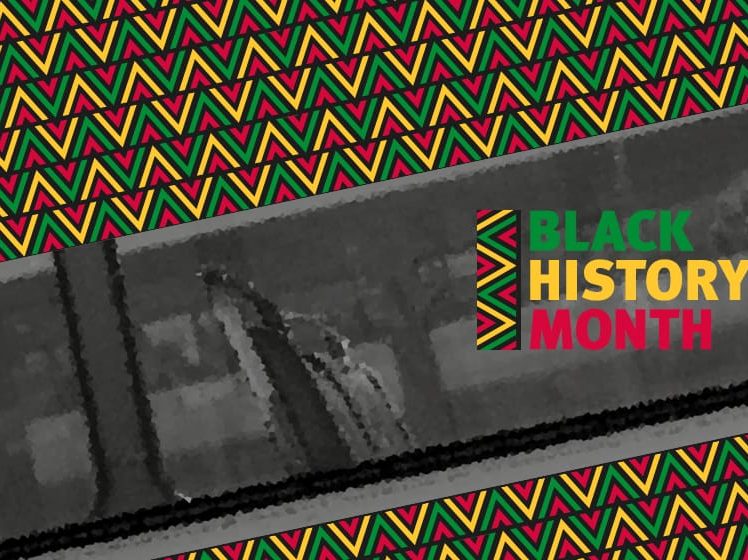Black History Month has been celebrated in the UK in October since 1987. It provides a platform to celebrate the achievements of black people, which for many years have been overlooked in the teaching of history. It is an excellent opportunity to put a spotlight on the contributions of the UK’s black community across science, politics and the arts.
Until the late 1960s, it was not illegal in Britain to discriminate against someone because of their race. The Bristol Bus Boycott of 1963 helped to change that.
The Bristol Bus Boycott was the country’s first black-led campaign against racial discrimination, and it was the beginning of the struggle for racial equality in the UK.
What led to the Bristol Bus Boycott?
To understand why the Bristol Bus Boycott happened, you need to know a bit about the history of the UK. In the late 1940s and throughout the 1950s, Britain was experiencing a labour shortage due to the number of lives lost during the Second World War.
The government decided to solve this problem by encouraging people to immigrate to the UK from Commonwealth countries, like Jamaica, Trinidad and Tobago, and Barbados in the Caribbean.
Thousands of people answered the call and arrived on Britain’s shores between 1948 and 1971. They are known as the Windrush Generation because of the first ship that brought them to Britain, the MV Empire Windrush.
In Bristol, in 1963, there were an estimated 3,000 people of Caribbean origin living in the city, and they experienced discrimination when it came to housing and employment. Some were even violently attacked and, despite the labour shortages, many black people were refused jobs because of the colour of their skin.
What happened during the Bristol Bus Boycott?
This leads us on to what happened during the Bristol Bus Boycott. The Bristol Omnibus Company’s workers belonged to the Transport and General Worker’s Union which, in 1955, passed a resolution that banned ‘coloured’ people from working as bus drivers or conductors. The Bristol Omnibus Company did nothing to oppose this resolution.
Meanwhile, a Jamaican man called Roy Hackett helped to set up the Commonwealth Coordinated Committee (CCC) in 1962. Its purpose was to unite the Caribbean community and support any black person who was facing discrimination.
Another black-led organisation at the time was the West Indian Development Committee (WIDC); this was run by Paul Stephenson.
Together, the CCC and the WIDC campaigned against racial injustices and their biggest fight was in 1963 against the Bristol Omnibus Company, which refused to hire non-white staff.
In 1963, Paul Stephenson set up an interview for Guy Bailey with the Bristol Omnibus Company but when the employers realised Guy was black, the interview was cancelled.
In response, there was public outcry and, inspired by Rosa Parks and the Montgomery bus boycott, the CCC and WIDC called for a boycott of Bristol’s buses.
Students and academics from one of our partner universities, the University of Bristol (our other partner in the city, UWE Bristol, did not yet exist as a university!) joined the boycott and staged a demonstration in the city centre.
They marched from the bus station to the headquarters of the trade union and faced much verbal abuse from angry bus company employees along the way.
Soon the boycott was receiving national and international attention, with figures like Prime Minister Harold Wilson, Labour politician Tony Benn and famous West Indian cricketer Sir Learie Constantine supporting the campaign.
After months of pressure, the Bristol Omnibus Company was finally forced to end its racist policy in August 1963.
The impact of the Bristol Bus Boycott
In the years following the boycott, the British government introduced the Race Relations Acts of 1965 and 1968, which outlawed discrimination on the ‘grounds of colour, race, or ethnic or national origins’.
While racial inequality is still a problem in today’s society, the successful Bristol Bus Boycott campaign was a step in the right direction. It showed that people could enact change.
As Honorary Professor of History at the University of Bristol, Madge Dresser, says in this article:
“… [the Bristol Bus Boycott] did help to pave the way for the UK’s crucial Race Relations Acts of 1965 and 1968. The Boycott has helped change Bristol and Britain forever. It shows us the difference ordinary people can make when they come together to take action against social injustice.”
Share this quote
Learn more
If you’re interested in Law, Politics or History and would like to see how you can study these subjects in the city where the Bus Boycott took place, use our degree finder to search for related degrees.
And, if you want to know more about Black History Month, then you can visit the official website, where you’ll find lots of resources, information and remarkable stories.




